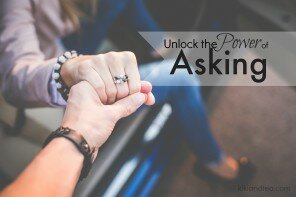
Carly with Jack, one of only 16 people in the UK with the same condition as Carly. A perfect example of positive support.
Dear illness specific online support group:
I am breaking up with you. Calling things off. Walking out. Taking my records and changing my number. It’s not me it is you.
I have dabbled in the world of online support groups ever since the Internet became available, back in 1996. My school librarian thought a good way to spend my time while not participating in PE classes was to research my condition (Ichthyosis) on the Internet. Maybe contact some people who also have it. And so I did. It beat doing cross country runs. (Though I spent more time researching Savage Garden than researching Ichthyosis!)
At first it was interesting. I shared similar experiences with people. I was relieved there were others who could relate to me. And I have met some wonderful new friends – I have met several in person and keep in contact with others online – and I am thankful.
But then it got dark. I realised people haven’t been as lucky as I have been to have supportive parents and an education. There was resentment and non-acceptance. And I saw a competition about who has it worse. Sadly it’s the vocal minority that bring on the negativity. I see my illness as a blessing. It’s socially and medically hard but I’ve made it work for me. Others don’t feel it’s way. I think they believe I’m unrealistically positive.
I’ve had a certain member of the support group write to me ranting about how they haven’t had the life I have, and that’s somehow my fault.
I have had people assume I’m unable to work, because they are not able to.
I have had mothers dismiss my opinion or advice because, well, I’ve only been living with the condition all of my life.
I see a victim mentality, and negativity breeds negativity. There are can’ts and I give ups. There are limitations placed on the expectation of children when they grow up. There is too much woe is me.
I worry about sharing medical advice online. Just because it worked for one person, it doesn’t mean it will work for others.
I worry about sharing photos of children’s skin – photos of their infections and bodies – without their permission.
I worry about sharing too much negative information – there will be little hope instilled in young people with the illnesses, and their parents.
I understand the Internet is a good place to vent. I also understand that people cope differently. I understand that for some parents, and patients with the condition, the Internet is the first occasion they’ve ever encountered others with the condition, and want to drink up as much information as possible. And I understand how the Internet can support people with chronic illnesses and disabilities – I’ve even done my Masters thesis on it, and proven my hypothesis true . I must seem quite contradictory.
From my thesis:
“The internet can be a vehicle for support for people with chronic illness and disabilities. This concept is explored in a number of papers including Tan (2008), Fox (2008) and McGeehin-Heilferty (2009). Parr, H (2002, pp 73 – 95) writes about the increasing availability of health information on the internet and individual health consumerism. “Virtual space has also facilitated the formation of on-line communities, which are specifically focused around experiences of the physical body, experiences which sometimes contradict or contest dominant health discourses and knowledges. The growth of chat rooms, support groups, and specific information-exchange sites surrounding particular bodily conditions is phenomenal” (Parr, H , p. 76). Parr (2002, p 77) also outlines the trend that “health and illness are now not confined to the clinical locations of the hospital or the GP surgery, or to the relationships between doctors and patients, but are dispersed throughout various social and commercial arenas” (Nettleton and Bunton, 1995 in Parr, H ).
Tan (2008) discusses the way people use Myspace blogs as a self therapy tool. One conclusion he makes is “MySpace blogging is certainly no replacement for traditional psychotherapy or psychoanalysis. This should not stop us, however, from constructing new understandings of the link between certain forms of human signification/expression (e.g. blogging) and potentially therapeutic or lifeaffirming effects”.
The rise of the term ‘e-patient’ is also discussed in papers; Fox (2008) discusses the way “internet users living with a disability or chronic disease are more likely than other internet users to be wide-ranging online health researchers and to report significant impacts from those searches”. While I do not regularly seek out treatment for my illness online, readers of my blog have found it because they were searching for information.
I choose to blog because it’s a passive way of taking part in the online illness community. From my thesis: While I write about my experiences with ichthyosis, it is not my motive to seek further information about treatments or others’ experiences. I am not actively seeking a place in the community of others with ichthyosis. However, my blog does enable internet users to consume information about ichthyosis, and so I have inadvertently become a member of that community.”
In order for me to be happy and healthy, I need to give up illness specific online support groups. They offer me no support. To be honest, when I close my browser window I feel judgemental and quite frustrated. I get medical support from my wonderful dermatology team and I get emotional support from family and friends. It’s not just me feeling this way – friends of mine with chronic illnesses and disabilities have hash the same experiences.
The support I receive from the online community – many of whom don’t have the same illness as me trumps the effects of the illness specific support group. I understand others may benefit, and I value the friendships I have made, but this support group is not for me. I much prefer one where people aren’t trying to compete, and I am so lucky to have belonged to one.
So it’s over. I’m calling it off between us. I’m better off without you. This is a break up for the best, and I shan’t be mourning.
No love,
Carly.
Sources:
McGeehin Heilferty, C (2009), ‘Toward a theory of online communication in illness: concept analysis of illness blogs’ in Journal of Advanced Nursing, Vol. 65, issue 7, pp. 1539 – 1547, July 2009.
Parr H (2002), ‘New body-geographies: the embodied spaces of health and medical information on the Internet’, Environment and Planning D: Society and Space 20(1) 73 – 95.
Tan, L (2008), ‘Psychotherapy 2.0: MySpace® Blogging as Self-therapy’, American Journal of Psychotherapy. New York: 2008. Vol. 62, Iss. 2; pg. 143, 21 pages.







